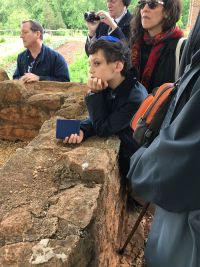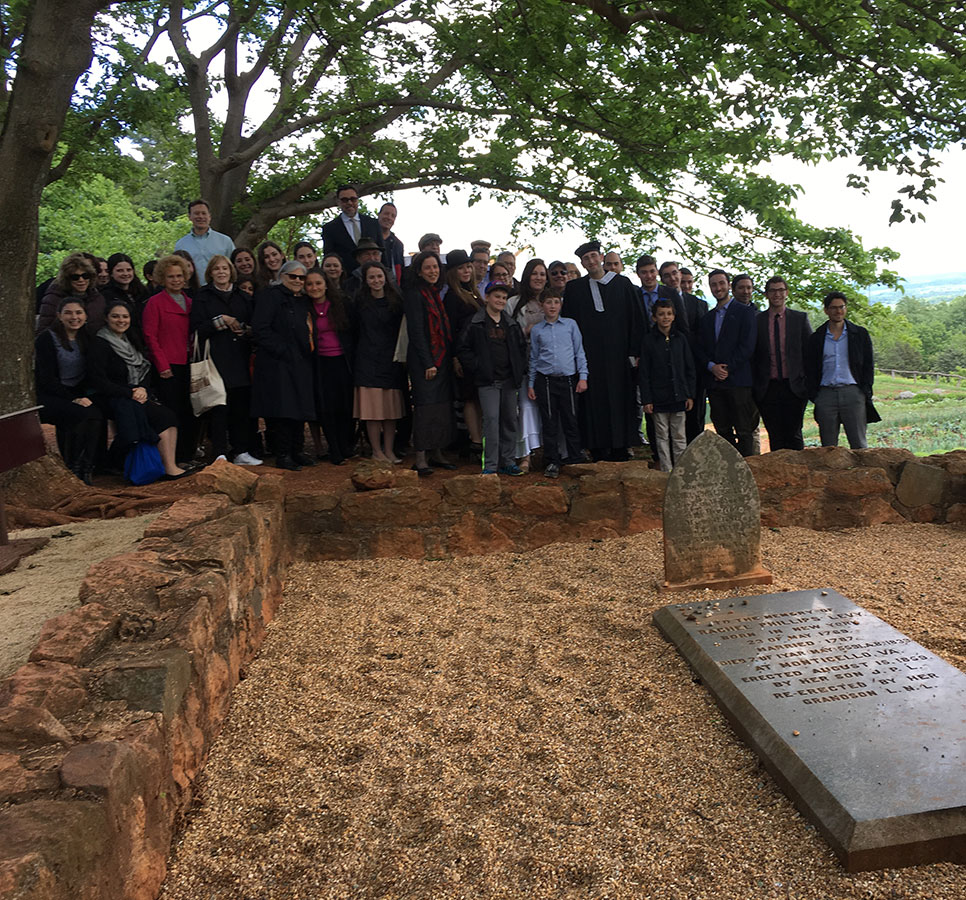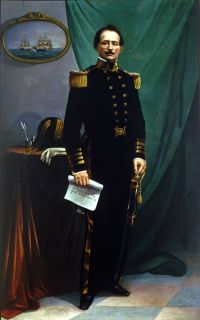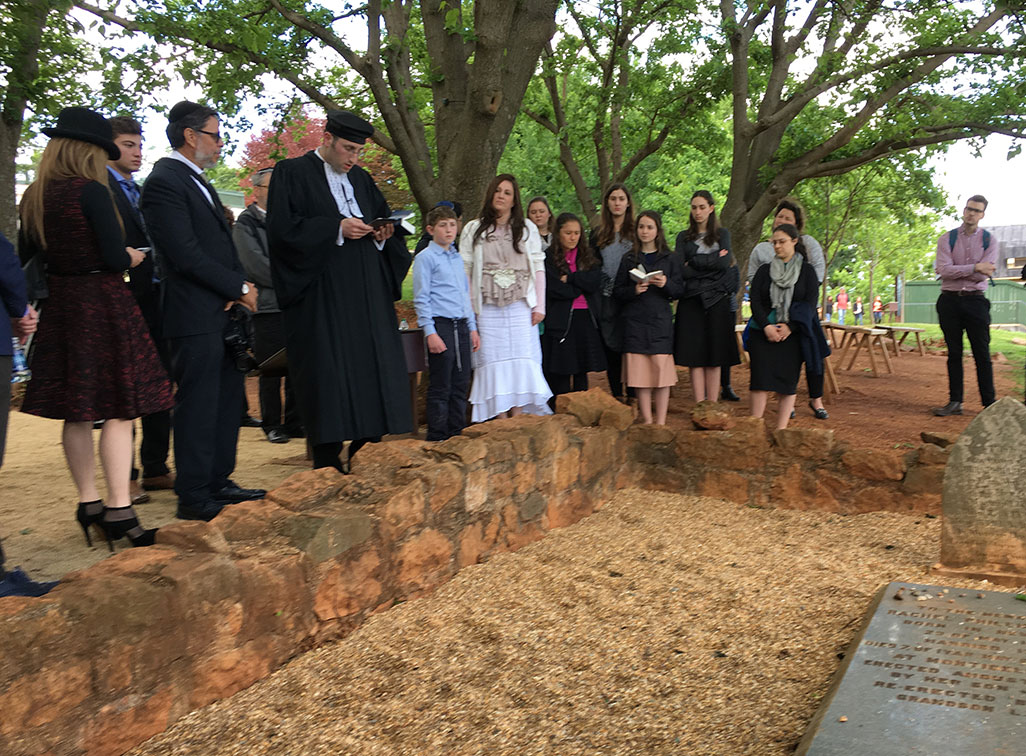
A Jewish Prayer for the Dead
Eleven–year-old Liam Gomberg, wide-eyed and chin in hand, was captivated as he listened to ancient verses of the Jewish memorial prayer for the dead. Liam, his family and approximately 50 Congregation Shearith Israel synagogue members had traveled from New York City to Virginia to honor one of their own, Rachael Levy buried at Monticello 178 years ago.
“We seek to do good because we are inspired by the lives that have come before us,” said Rabbi Dr. Meir Soloveichik as he led his congregation in Hebrew and English prayer around Rachael’s grave. The Levys were patriots, he said, “May they live on in the heart and memory of American Jews for generations to come.”
The remains of Rachael, mother of Uriah Phillips Levy credited with saving Thomas Jefferson’s home after his death, rest on Mulberry Row, Monticello’s “Main Street” during Jefferson’s era. It’s where many of the enslaved lived and worked.
Levy was a member of Shearith Israel, the country’s oldest Jewish congregation. He admired Jefferson, author of the Virginia Statute for Religious Freedom, for his belief that “a man’s religion does not make him ineligible for political or governmental life,” he stated. A U.S. naval officer, Levy bought a dilapidated Monticello in 1834 from the mansion’s second owner, James Barclay for $2700. Levy’s nephew, Jefferson Monroe Levy, sold the mansion and surrounding property to the Thomas Jefferson Foundation in 1923.
Religious freedom was the topic of a special event earlier that day at Monticello’s Milstein Theater featuring an informal conversation between Soloveichik and Jon Meacham, Pulitzer Prize winner and vice-chair of the Thomas Jefferson Foundation. About 100 people, including the Shearith Israel congregation, attended the May 7th event.
The conversation was scholarly and witty as the two exchanged ideas about Jefferson, religious freedom and how Americans live today. “Thomas Jefferson loved predictions,” said Meacham recalling that Monticello’s sage believed one day all Americans would be Unitarian. He wasn’t always right, joked Meacham who authored Thomas Jefferson: The Art of Power. Jefferson created his own version of the Christian gospels by cutting and pasting scripture into what has become known as The Jefferson Bible.
According the Soloveichik, the country’s set of beliefs can be found in its founding document. “The Declaration of Independence is actually America’s covenant,” he said.
“Jefferson’s idea that there should be no state sponsorship of any religious group became an important idea in the United States, even as the contours of that idea are still being debated,” said Gary Sandling, Monticello’s Vice President of Visitor and Services Programs. “Shereith Israel’s journey to Rachael Levy’s gravesite was a reminder of that,” he added.
The day’s historical significance was not lost on young Liam. “It’s important to me because they (the Levys) were Jewish and they had a special connection to Jefferson … he helped Jews with religious freedom,” he said. Reflecting on the day’s events, Soloveichik said, “This is something I’ve wanted to do for a long time,” before he and his congregation boarded a bus back to New York.







